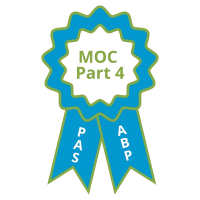Quality Improvement/Patient Safety Works in Progress
Session: Quality Improvement/Patient Safety Works in Progress
WIP 13 - Quality Improvement Project to Increase Assessment for Late Onset Hearing Loss
Friday, April 25, 2025
5:30pm - 7:45pm HST
Publication Number: WIP 13.7665
Zachary R. Kim, Kapi'olani Medical Center for Women and Children, Honolulu, HI, United States; Lynn M. Iwamoto, University of Hawaii, John A. Burns School of Medicine, Honolulu, HI, United States

Zachary R. Kim, DO
Resident
Kapi'olani Medical Center for Women and Children
Honolulu, Hawaii, United States
WIP Poster Presenter(s)
Background: Hearing loss in infancy can have a profound effect on a child's language development, academic potential and social and emotional outcomes. Primary care physicians play a key role in hearing screening, follow up and early recognition of hearing loss in the newborn period. State programs track results, provide equipment and training, and foster communication between providers. However, there is still room to improve follow up rates for late onset hearing loss as well as family education. Primary care physicians who care for newborns create an environment of trust and engagement with families that is essential in optimizing outcomes. They are in an ideal position to assess risk factors for late onset hearing loss in the newborn period, and education-based interventions can increase provider awareness and promote further monitoring.
Objective: The specific aim of this project is to increase the assessment of late onset hearing loss risk by 50% from baseline.
Design/Methods: This project is an Institutional Review Board exempt, Quality Improvement project aiming to improve monitoring for late onset hearing loss. Each participating physician or resident will complete three sets of audits: baseline, after first intervention, and after second intervention. Measures will be tracked including outcome measures (assessment of risk factors), process measures (discussion with parent, improving physician knowledge) and balancing measures (time spent). The first intervention is to review a module on late onset hearing loss that includes case reviews, risk factors and monitoring guidelines. The second intervention involves participants educating office staff related to late onset hearing loss. Data will be analyzed and presented in run charts to assess the project's objective of improving the rate of risk factor assessment.
This Quality Improvement project is currently in progress. Statistical analysis and final poster are expected to be completed by 4/1/2025.


